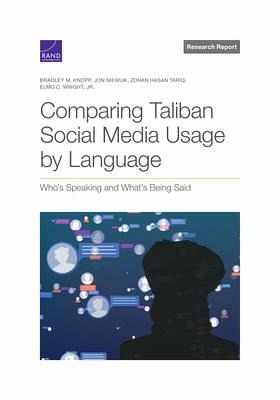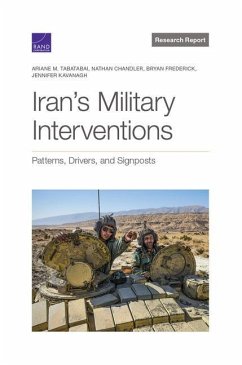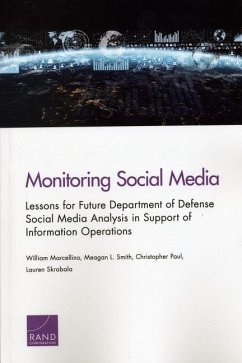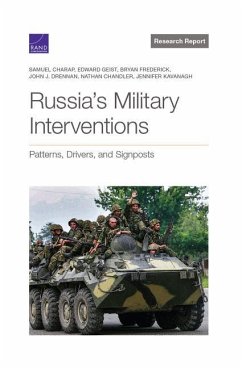
Comparing Taliban Social Media Usage by Language
Who's Speaking and What's Being Said
Versandkostenfrei!
Versandfertig in über 4 Wochen
22,99 €
inkl. MwSt.

PAYBACK Punkte
11 °P sammeln!
In the wake of the Taliban takeover and the reestablishment of the Islamic Emirate of Afghanistan in August 2021, there are significant questions about the best methods to interpret Taliban messaging. Better interpretation would, in turn, help U.S. and Western policymakers to better understand Taliban leadership intentions and would thus allow for better-informed U.S. and Western policy decisions regarding Afghanistan. Limited direct diplomatic contact between the Taliban and most Western governments necessitates reliance on alternative sources of information. Taliban use of social media, part...
In the wake of the Taliban takeover and the reestablishment of the Islamic Emirate of Afghanistan in August 2021, there are significant questions about the best methods to interpret Taliban messaging. Better interpretation would, in turn, help U.S. and Western policymakers to better understand Taliban leadership intentions and would thus allow for better-informed U.S. and Western policy decisions regarding Afghanistan. Limited direct diplomatic contact between the Taliban and most Western governments necessitates reliance on alternative sources of information. Taliban use of social media, particularly Twitter, was identified as one way to understand Taliban thinking. The authors of this report examine Taliban leadership use of Twitter in various regional languages and in English. Focusing on three areas-the economy, relationships with other militant groups and neighboring countries, and the status of women in Afghan society-the authors sought to clarify the messaging broadcast via this medium and to determine whether messaging differed by language used. The authors found no overall strategy behind Taliban social media use and no strong evidence that Taliban social media activity is coordinated at a high level. Messages appear designed to inform, persuade, and influence a target audience. On some issues, messaging was common across languages; in other cases, the messages were distinctly different, reflecting Taliban interest in tailoring a message for a specific audience without regard to potential contradictions by other individuals or among the various languages.














